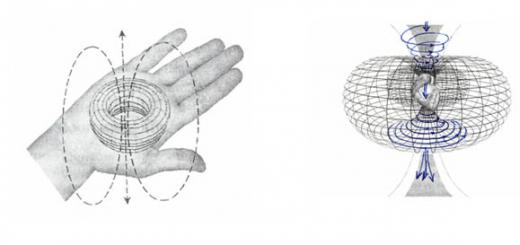Are you waiting for the international exam TOEFL, IELTS or others, where one of the stages is writing an essay? Or maybe you are applying for admission to a university and you need to tell about yourself, your achievements and plans in an essay? Either way, your goal is to write a great essay in English. This is not as difficult as it might seem at first glance, and we will help you figure it all out.
This article will tell you how to write an essay in English, what types of essays are in English, how to write an introduction to an essay, and what linking words to use in the text.
What is an essay?
Essay (Essay) in English is a short essay in which you express your point of view on a given topic. Writing a quality essay in English requires a high level of language proficiency, a rich vocabulary and the ability to clearly and concisely state your thoughts.
The formal style of narration is one of the features of the English essay, which distinguishes it from essays on a free topic, which we are used to in Russian. The English are serious about the style of presenting thoughts in an essay, so it is not recommended to use abbreviations and, in general, allow yourself to be frivolous in the text. Also, any essay, regardless of the topic, has a certain structure. But first things first.
Essay types
There are three main types of essay in English:
For and against essay (essay "for and against")
The name of this type speaks for itself: in it you need to give arguments “for and against” on a given topic.
Writing plan: in the introduction, you lead the reader to the problem; in the main part, you neutrally describe the arguments “for and against”, without expressing your own opinion; in conclusion - express your opinion about the problem and draw a conclusion.
Opinion essay (opinion essay)
Unlike “pros and cons”, an opinion essay is designed to express your thoughts on a topic. The peculiarity of the opinion essay is that you need not only to express your own opinion on the problem, but to reflect other points of view in the essay. So to say, look at the topic from a different angle.Writing plan: in the introduction, indicate the topic of the discussion; in the main part - express your opinion on the problem, supporting it with confident arguments, and also describe what other points of view there are; in conclusion, you summarize the results that support your opinion on the problem.
Suggesting solutions to a problem essay
Usually in such essays you are given some kind of global problem, and your task is to offer the most possible and relevant ways to solve it.
Writing plan: introduction describes the problem and its causes; in the main part, you need to offer several options for solving the described problem and the possible consequences of each of them; the conclusion summarizes the results and the final decision or recommendations.
Typically, the type of essay depends on the chosen topic and is often indicated directly in the assignment. If there are no type recommendations, then use any one that, in your opinion, is best suited to a given topic.
The above types of English essays are the most common, but there are others. Sometimes you need to write about your achievements and plans for the future (for example, when applying to a university or college), and sometimes a free-form essay about what excites you right now (that is, without a given topic).
Whatever the topic of the essay, when writing it, it is worth adhering to a certain generally accepted structure.
Structure
Usually, an examination essay should be 180-320 words long, but this framework is not rigid and must be indicated in the assignment along with the topic.
Before writing, it is worth remembering that an essay is not a detailed essay-reasoning on a free topic, but only a clear and concise expression of thoughts on a given problem. Therefore, all essays in English have a common structure:
header
The title of the essay, which reflects the topic or problem that will be revealed in the text. The title should be as concise and clear as possible. In fact, the title of the essay is similar to the title of the article: it should contain the main idea, which will be further disclosed in the text.
Introduction
It should indicate what the main part will be about. The introduction should explain the topic of the discussion and how you understand it, be concise (take up about 5-10% of the text), briefly outline the outline of the essay and refer to sources or other data if necessary. Main part
This is the main part of the essay in English, which reveals the problem and your opinion on it, depending on the chosen type of presentation. It provides arguments and examples, as well as other points of view on the topic. At the end of the main body, the text should smoothly lead the reader to the conclusion.
This part of the essay occupies approximately 75-85% of the total text.
Conclusion
At the end, you need to summarize all the thoughts revealed in the main part of the essay.
A good conclusion is not just a dry enumeration of all the above facts, but a well-reasoned conclusion on the topic. It may echo or refer to the introduction, but in different wording. In conclusion, you should not put forward completely new ideas or refute those already expressed, and also, use an apologetic tone for your opinion. Be confident in your point of view and simply state it again. The acceptable amount of text in the conclusion is 10-15%.
If you have an exam on the horizon, then our recommendations and tips on how to write an essay in English will come in handy.
Tips:
1. Sketch a draft
If time for writing is limited, then use a draft. Throw a plan on it and write down the main ideas. This will help you write an essay faster and not make mistakes in the final version.
2. Stick to structure
3. Be concise
Express your thoughts briefly, without delving into reasoning.
4. Argue
Give clear support to the words when expressing your own or someone else's point of view on the topic. Draw conclusions based on these arguments.
5. Stick to a formal style
The formal style of presentation is the best option for an essay, unless otherwise indicated. Do not use abbreviations, slang and colloquial expressions.
6. Use link words
Special words will help you consistently express thoughts, lead the reader to a conclusion and build the correct structure in the text.
7. Diversify vocabulary and grammar
Despite the fact that the essay is written in a formal style, it does not hurt to add a little brightness to it to give the text personality. If thisappropriate, use synonyms for and .As for grammar and compound sentences, use them only if you are confident in your knowledge. Otherwise, mistakes or misuse of time will play into your hands.
8. Be correct
Often the topics for an essay are acute social issues, the opinion on which can be sharply polarized. When expressing your thoughts on ambiguous occasions, you should be as correct as possible and do not forget about elementary delicacy, tolerance and politeness.
9. Check for errors
Obvious but extremely important advice. Take a look at the finished essay to check it for all sorts of errors and typos.
- Remember that you are writing an essay for another person who is not your friend or colleague, which means stick to neutral expressions, use standard speech patterns, write to the point and do not deviate from the topic.
- Do not abuse adjectives, exclamation marks and avoid common words (all, any, every). Also, do not use phrasal verbs (put it, get off, etc.) and abbreviations (can't instead of cannot, don't instead of don't, etc.). Adhere to an academic-informational style of presentation: avoid personal pronouns (I, my, we, our) and give preference to the active voice over the passive voice.
- To give the text objectivity, express your opinion on the topic using impersonal constructions (It is believed that…; It cannot be argued that…, etc.) and non-categorical verbs (suggest, suppose, claim, etc.). Words such as apparently (obviously), arguably (probably) and other adverbs will help you correctly express your opinion on the issue.
- Divide the body of the text into paragraphs according to their meaning, which can be interconnected and complement each other. Do not overload paragraphs with sentences and make them all about the same length. At the beginning of a paragraph, it is better to use linking words that will help to continue the thought expressed earlier.
- If you cite examples or quotations in texts, refer to the source and date of publication of the statement. This can be done in parentheses, indicating the author and year.
Useful words for an essay
Introductory words
Introductory phrases for an essay in English are universal and suitable for any type of essay.
This essay deals with... - This essay deals with...
This assignment will examine… - This work examines…
This report will analyze... - This report analyzes…
This essay will consider… - This essay will consider…
It is believed that ... - It is believed that ...
Some phrases that will help outline the outline of the essay and clarify the content:
The essay is divided into four sections... - This essay is divided into four parts…
It will first consider ... - First considered ...
It will then continue to describe… - After which we will continue to describe…
The third part compares… - The third part compares…
Finally, some conclusions will be drawn as to...
Linking words
Linking words or linkers (linking words) will help you not only express your thoughts logically in an essay, but also make the text easy to read and structured. Take note of these words for everyday speech, because the ligaments make it more logical and bring it as close as possible to the speech of the native speakers themselves.
Linkers for sequencing ideas(linking words to organize thoughts)
Finally - finally, in the end
First(ly)... second(ly)... third(ly) - first (first)... second (second)... third (third)
Lastly - finally, at the end
The first point ... the second point ... the third point - firstly (first point) ... secondly (second point) ... thirdly (third point)
The former... the latter - the first... the last
To begin with... then... to conclude - to begin... then... finally
Linkers for expressing opinions(linking words to express opinion)
According to… - According to…
It cannot be denied that… - It cannot be denied that...
It is said / believed that ... - They say / believe that ...
Some people say that… - Some people say that...
There is no doubt that… - Without a doubt…
We must admit that… - We must admit that...
From the first person:
As far as I am concerned - As far as I know...
From my point of view - It seems to me that ...
I agree - I agree
I am in favor of - I am a supporter of ...
I am against the idea of - I am against the idea ...
I believe that - I believe that ...
I disagree - I disagree
In my opinion - I believe that ...
Linkers for giving examples(linking words for examples):
As follows - next, as indicated next
For example For instance - for example
Namely - namely
Such as - such as
Linkers for giving reason(linking words to explain why):
As - since
Because - because
Because of - due to the fact that
Due to - according to
Owing to - thanks
Since - since
Linkers for contrasting ideas(linking words for opposition):
Although / even though - although, even if
But - but
Despite - despite
However - however
In comparison - in comparison
In contrast - unlike
In spite of - despite
In theory - in theory
In practice - in practice
Nevertheless - in spite of, nevertheless
Nevertheless - nevertheless
On the contrary - on the contrary
On the one hand - on the one hand
On the other hand - on the other hand
Unlike - unlike
Whereas - then how
While - while
Linkers for adding information(linking words for more information):
Also - also
And - and
Apart from - apart from, along with
As well as - just like ...
besides - besides, besides
Furthermore - more than that
In addition to - in addition to
moreover - in addition, moreover
Linkers for summarizing information and showing the result(linking words for summing up)
As a consequence - as a consequence
As a result - as a result
consequent - consequently
Hence - therefore
In brief In short - in a nutshell
In conclusion - in conclusion
In summary - in the end, summing up the above
Therefore - therefore
Thus - thus
To conclude - drawing conclusions
To summarise - summing up
Hello my beloved readers.
If you are sure that you write great essays - forget about it!
Okay, that's kind of rough. But in reality it turns out to be true. All of us - Russian-speaking people - write essays in Russian perfectly, but when it comes to essays in English for the Unified State Examination, then we start having problems (to put it mildly). The thing is that we do not follow their rules and structure, but we should ...
Therefore, today we will learn how to write an essay correctly, what requirements to obey, and I will also give you ready-made essays so that you can clearly see how they should look.
For high-quality preparation for the exam, you need to use simulators that bring you as close as possible to the exam situation. You can use this trainer here . Train and get 100 points!
What is an essay and its types
Let's start with the main question. It is probably already obvious that an essay is a kind of essay on a specific topic. But everything is not so simple. The first thing to be clearly understood is the difference between the two types of essays. These include essays expressing personal opinion, as well as compositions of the structure "for and against". And here is the difference between them you should know by heart.
Essay Requirements
The main requirement for this assignment in 2017 is the amount of words. Alas, you are limited to 180-275 words. In addition, your essay must be grammatically correct, and vocabulary, of course, must correspond to the level of the language. I do not recommend using words from the Elementary level when you are trying to pass an exam.
Also a very important element in assessing the quality of a written work is its style. Yes, usually we are not very attentive to this aspect. With us, the “richer” and “more informal” language you use, the better. But the British love a clear structure, so I don’t just advise you to do anything other than the formal style of writing, but even forbid it!
Planessay
Plans for different types of essays are also different.
Essay plan for and against
For an essay of the pro-against type, the following structure is usually used:
- Introduction.
Start with a clear statement of the existing problem, as well as a sentence that expresses duality.
- Arguments for".
Decide on the arguments for. Express them clearly and, most importantly, do not forget that they are still related to the problem.
- Arguments against".
Decide on the arguments against. You can even combine them with the previous paragraph. The main thing is that your thoughts are clearly defined and argued.
- Conclusion.
In conclusion, summarize what has been said clearly and clearly, but still repeat the controversial topic again, expressing some hope for its solution.
What I usually recommend to my students is to plan your essay before you write it. The worst mistake is to write randomly. Then a lot of mistakes await you, as well as a complete discord in thoughts.
Essay plan "personal opinion"
If you need to express your opinion, then the structure of the text will be completely different:
- Introduction.
In this type of essay, the beginning is identical to the previous one: you just need to identify the exciting question.
- Expressing your opinion.
Here you express your point of view and give several arguments why you think it is correct. Don't waste all your arguments on this part. One or two will still be useful to you in the future. Here you can give 2-3 arguments.
- Expressing an opinion opposite to yours.
Every point of view has its opposite arguments. So imagine them here. It is undesirable to write less than two.
- your counterarguments.
And here already and use those couple of arguments that I advised you to save. In this case, 1-2 will be enough.
- Conclusion.
The words- assistants
Essay writing rules are an important step, but it is equally important to use introductory constructions and expressions that will show your level of language proficiency, as well as dilute boring formal text with neutral phrases. Let's see some translation examples:
People say…/ It is thought… - They say…
Firstly… / Secondly… - Firstly/Secondly…
To begin with… - Starting from…
In addition to… - In addition to…
Besides… - Besides…
Despite… - Despite…
As a result ... - As a result ...
On the one hand… on the other hand… - On the one hand… / On the other hand…
The problem is/might be/seems to be…
While ... - While ...
What is more… - Moreover…
Summing up… - Summing up…
In conclusion ... - In conclusion ...
Suggested Topics
Of course, I can’t say with certainty what essay topics this year will be, but from experience I can say that the topics are always general. The reason for this is that on the banking topic, for example, few people will be able to write. But on general topics, any of us can write anything based on our own experience. Therefore, here are some suggested essay topics for you:
- Food - Food.
- Traveling - Travel.
- Fashion - Fashion.
- Love and friendship - Love and friendship.
- Money - Money.
- Environment - Environment.
- Family problem - Problems in the family.
- Work and career - Work and career.
- Leisure time activities - Leisure time activities.
By the way, there is a wonderful manual that will help everyone learn how to write an essay perfectly! Just follow the rules and practice. The author gives here the maximum that a student can get in preparation for the written part of the exams.
Examples
Of course, I could not leave you with nothing, and not even give a template or sample of how to cope with this task. Read and analyze.
Have domestic appliances improved the quality of our lives?
Nowadays, many people have a great variety of devices at home that are thought to make our life easier. However, they also have some disadvantages. (Remember to start with a clear problem statement)
On the one hand(don't forget to use introductory words ) , they definitely reduced the amount of time we spend on doing household chores. Cleaning, for example, has become much easier due to the invention of vacuum cleaner. What is more, washing clothes does not seem to be a big problem anymore. Women do it far more quickly than they used to. In addition, the process of cooking for a big family has become much easier. You can have a microwave as long as multi-cooker to prepare food in an hour insteadofspending the whole evening in the kitchen. (In this type of writing, it is important to make a clear structure: write only about the advantages at once, and then only move on to the disadvantages. Or vice versa. But never mix).
However, even though all this equipment was made to save our time, it also encourages people to work more, or spend their free time in front of television or computer. And that does not necessarily make people happy. They become lazier and in case something happens- they will no longer be able to survive without all these appliances.
Summing up, it must be said that although technology has made the life easier it should not define thequality of our lives. (Don't forget to conclude at the end, but thereby emphasize your point of view).
The structure of an essay, as I said, differs depending on the type. Therefore, I will give you an example with a variety of clichés and the second type.
Is it better to go on holiday with family or friends?
It is usually thought that going on holidays with friends is much better than spending free time with your family. I completely disagree with it. ( Similar to the previous comment - don't forget to fix the issue and mention it).
First of all, it is much more economical as parents usually pay for their children so you do not have to spend much of your money. Secondly, it may seem that going on holidays with your parents may be boring, but the reality shows that you can have as much fun with your relatives as you could have with your friends. (We express 2-3 arguments in support of your opinion).
There is also an opinion that spending time with your friend or without your parents makes you more responsible and confident. It is thought that you learn to live on your own. (Do not forget that it is also necessary to indicate someone else's opinion opposite to yours).
I cannot agree with this point of view as the adolescence is the process that cannot be fulfilled during your holidays. And sharing time with you family, on the other hand, strengthens your relationship and encourages you to develop core human values. (Contrasting the new arguments against the counterarguments you've received).
So whether there is a question who to spend your vacation with, make sure that it will be spent with those who love you most-your family. (And, in the end, do not forget to draw the right conclusion, stating your opinion).
Common Mistakes
Of course, no mistakes anywhere. But there are mistakes that are typical for almost 50% of students taking the exam. Therefore, I want to highlight those for which it will be a shame:
- Forget about structure. Use informal words, phrasal verbs, or simply inappropriate vocabulary in style and format.
- Write abbreviations don't, haven't, etc.
- Do not use introductory structures.
- Write less or more than the prescribed word limit.
- Do not reveal the topic of the essay or “walk away” from it, hoping that you will be appreciated for writing at least something.
- Stupid grammar mistakes. It is better to check and correct 10 times.
Guys, if you seriously want to structure your knowledge and improve your skills for the USE 2017 under the guidance of a class teacher:
Quicker sign up for a free introductory lesson at the EnglishDom online school. There determine your level language proficiency, learning weak sides, pick up most suitable a teacher for you, and you can study individually through convenient online platform at the best time for you and at a reasonable cost.
Well, my dears, I am sure that your essay is no worse, and maybe even better. I hope that after today's lesson it will become much easier for you to write, and the word "composition" will move from the category of "oh, what a horror" to the category of "well, wonderful".))
And in order to improve not only your writing skills, but also everything else that you will need when you surrender your formidable three-letter look that frightens everyone - subscribe to my blog mailing list. There I regularly share useful materials, tips and tricks based on personal experience.
Until then, I say goodbye to you.
See you again.
P.S. If you are interested in learning about my experience of passing the entrance exams and just reading my thoughts on this topic, then forward to my article ""
The exam in English 2020 involves writing an essay. This is task number 40, which implies the compilation of a detailed written statement with elements of reasoning. The essay must be written correctly in order to be able to earn a maximum of 14 points, which are very important for getting a high mark on the test paper as a whole. Let's get acquainted with the basic requirements for an essay, the criteria for evaluating this assignment. In this article, we will also provide information regarding the structure, plan, and topics of the Extended English Writing Assignment. All this will contribute to writing an essay for a high score.
Changes in the essay in the USE-2020 in English
There are changes in the essay in the USE -2020 in English, but they are not cardinal. The main innovations include the following:
- Now you have the option to choose a theme. In the ticket, students are offered two topics, from which they need to choose one and start writing. Remember that it is important to immediately decide on the preferred option so as not to waste precious time throwing.
- The criteria for assessing the performance of tasks have been changed. You will learn about them below.
- The wording of the assignment has been revised. In particular, this applies to "Make an introduction (state the problem)", which turned into "Make an introduction (state the problem paraphrasing the given statement)". This was done so that the examinees understood the need to rephrase the topic, and not just rewrite it.
It is necessary to leave enough time for writing an essay, as it is usually sorely lacking after completing the previous difficult tasks. It is important to remember all the nuances. To guarantee an excellent score, you need to prepare in advance for an essay, working out a possible structure (plan), topics and preparing clichés. 
The scope of the essay remained unchanged. It comes in a range of 180 to 275 words. Experienced teachers say that 200-240 words are enough. If more is written, but it makes no sense, but only “water”, then this will not lead to a positive result. By the way, if you write more than 275 words, the verifiers will count the first 275 and only check them.
Evaluation criteria for task No. 40
The assessment criteria for assignment No. 40 in 2020 have been changed. In particular, this affected such a criterion as "Solution of a communicative task". Currently, there is already precise information on how exactly points will be calculated. The information was published on the official website of the FIPI, and we duplicated it in the table below.
| Points | Solving a communicative problem (K1) | Text organization (K2) |
| 3 | The task is completed completely, when all the aspects that are indicated in task No. 40 are fully reflected, the speech style is neutral. | All statements are completely logical, the structure of the text corresponds to the plan, the means of logical connection are used in the correct form, and the text has paragraphs. |
| 2 | The task is completed if most of the aspects are disclosed, but there are some stylistic violations of the design. | Almost all statements are logical, although there are slight deviations from the plan, shortcomings in the use of linking words, and the text is not always correctly divided into paragraphs. |
| 1 | The task is incomplete, if the text does not reflect all aspects of the task, there are significant styling problems. | Not all statements are logical, the plan is violated, there are errors in the use of linking words or these phrases are given in a limited number, there is no division of the text into paragraphs. |
| 0 | The task is not completed when the aspects given in the task are not reflected, the essay does not correspond to the specified volume, or more than 30% of the text is “water”, coincides with the finished essay or the work of another student. | There is no logic in the construction of proposals, the plan does not correspond to the topic. |
Advice! It is enough to write an essay according to the plan, adhere to the volume and neutral style of design. If this information is omitted, then there is a high probability of getting zero points for this criterion, which leads to the zeroing of the entire work.
Remember that there is a criterion for counting words. Moreover, the calculation takes into account both words, and articles, and particles, and auxiliary particles. When composing a personal letter (there is also such a topic), the address, date and signature should be taken into account. The expert will pay attention to individual details. In particular, you need to write numbers in numbers (for example, 25, 126 965, 2020, etc.) or numbers with symbols (25%, 23%, etc.). So they will be considered as one word. Numerals expressed in words are counted like other words. Compound words (well-bred, twenty-five, good-looking, etc.) count as one, as do abbreviations (USA, CD-rom, e-mail, etc.).
By the way, experts will judge the observance of a neutral style of presentation by the absence of abbreviations and colloquial vocabulary. It is also advisable to stop using rhetorical questions.
The criteria for scoring the grammatical-lexical and spelling-punctuation design of the essay can be found in the table below.
| Points | Vocabulary (K3) | Grammar (K4) | Spelling and punctuation (K5) |
| 3 | Vocabulary is sufficient and corresponds to the complexity of the task, there is no more than one lexical error. | Grammatical means are used in sufficient volume and in accordance with the task. No more than two mistakes are allowed. | None. |
| 2 | Vocabulary is sufficient, has up to three lexical errors. Or the vocabulary is limited, but there are no lexical errors. | Grammar means are used correctly and in sufficient volume. There are no more than four errors. | The text is divided into sentences correctly from a punctuation and spelling point of view. There is no more than one error, either spelling or punctuation. |
| 1 | Vocabulary does not fully correspond to the task. There are up to four lexical errors. | Grammatical means do not fully correspond to the task and the established level of complexity. There are up to seven grammatical errors. | There are up to four spelling or punctuation errors in the text. |
| 0 | Vocabulary is poor and does not match the task. The text contains more than five lexical errors. | Grammar is used incorrectly. There are more than eight errors in the text. | The text contains more than five spelling or punctuation errors. |
The maximum number of points that each student can score for an essay is 14. Moreover, the leveling is determined by various criteria, which are given in the table below.
Should know! Lexical errors are understood as incorrect use of words, errors in compatibility, omission of words for no reason, errors in word formation, errors in a phrasal verb, spelling errors that lead to a change in a word.
Grammar errors are understood as omissions of words if they affect the structure of a sentence, incorrect word formation, problems with grammar or word order in a sentence. Punctuation and spelling errors should be understood as any that fall under this category, as well as illegible spelling of words or letters. 
The structure of writing an essay in English
The structure of writing an essay in English is very important to follow so that you can get a high score. Remember that the purpose of writing an essay is to show the ability to think analytically and reason in English on various topics. In other words, the level of proficiency in grammar and vocabulary is checked, which are indispensable in solving the tasks.
The structure of the essay involves five mandatory points:
- The first part is Make an introduction (state the problem), that is, an introduction. Here you need to rephrase the topic and select two opposing opinions. Further in the text, reflections will be given in the format “Some believe that ..., when others ...”. Following this simple pattern makes it easier to write and focus on the problem. By the way, if it is difficult to give an opposite opinion, then you need to rephrase the problem, and write the second part as “… whereas others think that handmade presents are more impressive.”, “…, whereas others don’t agree.” or "..., whereas others think that it's not true."
- The second part is Express your personal opinion and give 2-3 reasons for your opinion, that is, your personal opinion on the topic and two or three arguments in support. Here you need to express a personal opinion, which must be supported by arguments. It is best if each statement is supported by an example. The scope of this paragraph is approximately six sentences. In order to make the written more elegant, it is rational to use linking words.
- The third part is Express an opposing opinion and give 1-2 reasons for this opposing opinion, that is, the opinion of opponents and one or two arguments in support. Here you should give the opposite opinion to your opinion and pick up arguments for it. In principle, the task is simple, since there is nothing difficult in finding at least one argument that is the opposite of yours. You can use such helper words and expressions as “At the same time there are people who say that” (At the same time, there are people who say that), “in contrast” (in contrast to this, for comparison, on the contrary ), “in spite of” (despite), “in comparison with” (in comparison with, compared to), “unlike” (in contrast to), “however” (however), “yet” (while the same time, at the same time, on the other hand, however), “still” (at the same time) and others.
- The fourth part is Explain why you don't agree with the opposing opinion, that is, an explanation as to why you do not agree with the opinion of opponents. The purpose of this paragraph is to find one more argument in favor of your point of view. Remember that you need to rationally assess your strengths, that is, if you came up with only three arguments, then write two in the first part and one in this paragraph. Moreover, the opinion of the opponent must be treated with respect.
- The fifth part is Make a conclusion restating your position, that is, a conclusion that should confirm your position. Here you should once again briefly express your opinion as a result. Moreover, you need to write in other words, since a simple rewriting of the topic will not lead to the desired result.
Note! The first and last paragraphs of the essay should be different. Points will be deducted for identical proposals.

Remember that the use of abbreviations is highly undesirable. For example, writing isn't would be wrong, it would be better - is not. Also, do not write don't or shouldn't, more correctly - do not or should not. In addition, it is undesirable to begin sentences with the words also, but or and. Introductory words (you know, well, etc.) are also prohibited, as are slang (bunch of people will have to be replaced by a lot of people, and stuff - thing). When writing, do not copy your native language. Expression of thoughts must be in English.
Template and example of writing task number 40
The template and example of writing task number 40 are, in fact, the same thing. An example will help you understand how to write an essay correctly. See photo for one of the options. 
In general, it is enough to adhere to the following writing algorithm:
- Set aside at least 60 minutes.
- Read the topic and make a mind map. Make sure your arguments are correct.
- Read your arguments again, paying special attention to the third and fourth parts.
- Write an essay on a draft, but if time is too short, then you need to immediately write an essay on a clean copy.
- Check for errors and correct them if found.
- Rewrite the essay for a clean copy.
When writing an essay in the form, you must first indicate the task number. Also remember that you cannot write on the back of the form. That is why, if suddenly something does not fit, it is better to ask for another form. If you omit this recommendation, there is a high probability that the points for the task will be canceled.
Topics and clichés in English USE-2020
You need to know the topics and clichés for the English USE -2020 for successful essay writing. Among the topics that can be found in exam tickets, it is worth highlighting the following:
- Some people think that extreme sports help to build character.
- Some people think that to get a good education one should go abroad.
- Some people think that you can only have one true friend.
- Some people think that learning foreign languages is a waste of time and money.
- Some people think that young people should follow in their parents' footsteps when choosing a profession.
- Virtual Internet communication results in losing real-life social skills.
- In any occupation discipline is more important than talent.
- Public libraries are becoming less popular and they will soon disappear.
- A person who is fluent in a foreign language can easily work as an interpreter.
- A person who is fluent in a foreign language can easily teach it.
- Every city and every town should have a zoo.
- Fast food outlets should be closed.
- It is the government's responsibility to protect the environment.
- It's not right to be strict with little children.
- Internet is the greatest time-waster.
- Computers cannot replace people.
- Exams motivate students to study harder.
- Space exploration was the greatest achievement of the 20th century.
- Sports help people to fight stress.
- Clothes people are wearing can influence their behaviour.
- Sport unites people.
- Playing sports is better than watching others do it.
- There are no men's or women's professions.
- There are more disadvantages than advantages in living in a big city.
- Distance learning is the best form of education.
- The best holidays and festivals are those with specific traditions for celebrating.
- Everybody would like to work from home.
- The Internet is the biggest evil of our time.
- The best time is spent with family and friends.
- A pupil cannot study effectively without a computer.
- Taking a gap year after school is a necessary step for every teenager.
- Choosing a future profession is a difficult task for every school-leaver.
- Diets are important to stay fit and healthy.
- Healthy eating is an important part of everyday life.
- Having only one language of communication on our planet is a wise decision.
- Zoos should be prohibited.
- Zoos help most animals to survive.
- Studying a foreign language abroad is important for everyone.
- Knowing one foreign language isn't enough.
- The Internet is the most useful invention in the world.
- Human cloning experiments should be prohibited.
- The Internet will be the main source of studying in the future.
- Computer games are one of the best ways to spend free time.
- Space exploration is very important for the future of our planet.
- Space travel should be available for everyone in the future.
- Mobile phones are one of the most convenient ways of communication.
- Modern teenagers are criticized for no reason.
- Young generation lives better that people lived in the past.
- Soap operas are not interesting and take too much time.
- Violence on TV should be prohibited.
- To be rich means to be happy.
- Distant learning will become the only type of education in the future.
- Online education is very important these days.
- Home schooling is a very convenient way of studying.
Cliches are introductory phrases that are convenient to begin a sentence. But remember that they do not play any semantic or grammatical role in the sentence. In fact, cliches are needed to enhance the expressiveness and emotionality of the statement. The main options for introductory phrases include those that are shown in the photo below.

When writing, be sure to adhere to the established topic of the essay. You shouldn't deviate from it. The optimal style of presentation is formal, and the passive voice acts as an assistant. By the way, you should not use too simple sentences, as the expert may consider that you cannot think in English, and reduce points for this. You should also pay attention to the following tips when writing an essay (see photo).

Advice! On the Web, you can find many ready-made essays in English. Remember that they are not the best options. First, they can be wrong. Secondly, often the experts who check the essay know the ready-made options, because they are repeated on the exam from year to year. The best solution is to write an essay in English on your own, and ready-made options can be taken as a sample.
Now you know how to write an essay in English for the Unified State Examination -2020 for a high score. Remember to stick to the established structure and keep the basic requirements in mind. Pay attention to the grading criteria in order to accurately get an excellent mark. You can use a plan or template to eliminate the possibility of making mistakes. Remember that the ability to write an essay in English is important not only for passing the exam. This useful skill will be needed when passing international exams, including IELTS, TOEFL, FCE, etc.
Additionally, you can pay attention to the video, which tells about the correct writing of an essay in English for the Unified State Examination -2020.
Format and rules for writing an essay “expressing opinion”
The essay “expressing opinion” is written in a formal (business) style.
In this type of essay, you need to express your point of view on a given topic, as well as bring other people's points of view that are opposite to yours and explain why you do not agree with them. Your opinion should be clearly articulated and supported by examples or evidence.
Essay size 200-250 words (minimum 180 words, maximum 275)
The essay should actively use constructions like “In my opinion”, “I think”, “I believe”
It is necessary to use introductory words and constructions like “On the one hand, on the other hand”…, linking words (Nevertheless, Moreover, Despite…)
It is forbidden to use abbreviations, such as “I’m”, “they’re”, “don’t”, “can’t” (otherwise the score for organizing the composition will be reduced)
The “expressing opinion” essay has a strict structure, changing which when writing an essay will lead to a decrease in the score. The essay “expressing opinion” consists of 4 paragraphs:
1) Introduction(introduction)
In the introduction, it is necessary to clearly formulate the topic-problem, indicating that there are two opposite points of view on the problem (Some people claim that mobile phones are very useful devices while others argue that life could be less stressful without them.) and express your opinion without using too many personal designs
However, the first sentence should not repeat word for word the given topic of the essay. Recommended end of the first paragraph: Now I would like to express my point of view on the problem of …
2) Main body
1 paragraph. Give 2-3 arguments supporting your point of view, supporting them with examples or evidence.
In the second paragraph, you should stick to only ONE point of view, for example: Mobile phones in my opinion are very useful devices. OR I consider the mobile phone to be a harmful and useless invention.
It is necessary to give 2-3 arguments with evidence to support your own opinion
2 paragraph. Give opposing points of view (1-2), and explain why you do not agree with them. Example: However, some people think that mobile phones not only keep you in touch with your relatives and friends but also provide you with a great number of facilities. I can't agree with this statement because…
Your counterarguments to other people's opinions should not repeat the 2nd paragraph.
3) Conclusion (conclusion)
It is necessary to conclude, referring to the topic given in the 1st paragraph, that there are 2 points of view on the problem, and also to confirm your own point of view.
For example: “There are different points of view on this problem. I think that…” or “Taking everything into consideration, there are two different points of view on this problem. I believe that…
Useful vocabulary for composition"expressing opinion"
1 paragraph Introductory phrases
- It is popularly believed that….
- People often claim that... Some people argue that…
- A lot of people think that…
- It is often suggested /believed that…
- Many people are in favor of the idea that... Many people are convinced that...
- Some people are against…
2 paragraph. Phrases expressing your point of view:
- I would like to explain my point of view on this situation.
- I would like to express my opinion on this problem.
Phrases characterizing the advantages of the problem under discussion:
- As already stated I’m in favor of… for a number of reasons…
- There are many things to be said in favor of…
- The best/thing about……. is…
Phrases listing points of view:
- Firstly, /First of all….
- In the first place
- To start with, / To begin with,
- Secondly, Thirdly, Finally,
- Last but not least
Phrases that add new arguments:
- Furthermore, /Moreover, /What is more,
- As well as…. /In addition to this/that…
- Besides, /…….also….
- Not only…., but…… as well.
- Apart from this/that….
- not to mention the fact that
3 paragraph.
- Some people understand that… however they fail to that…
- they fail to consider that… they forget that…
- Some people argue that…. I can't agree with it as...
- I disagree with this point of view (statement, opinion) because …
- It has become fashionable for some people to argue that…
- Contrary to what most people believe, I think that…
- As opposed to the above ideas…I believe that…
4 paragraph. Closing phrases:
- in conclusion,
- on the whole,
- to conclude,
- to sum up,
- all in all,
- All things considered
- Finally,
- lastly,
- taking everything into account,
- Taking everything into consideration
Expression of personal opinion:
- In my opinion this subject is very controversial
- In my view…
- To my mind…
- To my way of thinking…
- Personally I believe that…
- I feel strongly that…
- It seems to me that…
- As far as I am concerned…
Criteria for assessing the performance of tasks С2
|
Solving a communicative problem (CONTENTS) |
ORGANIZATION OF THE TEXT |
Grammar |
Spelling and punctuation |
||
|
The task was completed in full: the content reflects all the aspects specified in the task; the stylistic design of the speech is chosen correctly, taking into account the purpose of the statement and the addressee; the norms of politeness accepted in the language are observed. |
The statement is logical: the means of logical connection are chosen correctly; the text is divided into paragraphs; the format of the statement is chosen correctly |
The vocabulary used is appropriate for the task at hand; there are practically no violations in the use of vocabulary. (1-2 mistakes) |
Grammar structures are used in accordance with the task. Virtually no errors. (1-2 mistakes) |
||
|
Assignment completed: some aspects specified in the assignment are not fully disclosed; there are separate violations of the style of speech; the norms of politeness accepted in the language are mostly observed |
The statement is basically logical; there are some shortcomings in the use of logical links; there are some shortcomings in dividing the text into paragraphs; there are some violations of the format of the statement |
The vocabulary used corresponds to the task, but there are some inaccuracies in the use of words or the vocabulary is limited. But the vocabulary is used correctly (3-7 mistakes) |
There are a number of grammatical errors that do not make it difficult to understand the text (3-7 mistakes) |
There are practically no spelling errors. The text is divided into sentences with correct punctuation (1-2 mistakes) |
|
|
The task was not completed completely: the content does not reflect all the aspects indicated in the task; style violations are common; generally the norms of politeness accepted in the language are not respected |
The statement is not always logical: there are shortcomings or errors in the use of logical connection means, their choice is limited; division of the text into paragraphs is illogical or absent; there are numerous errors in the format of the statement |
Unnecessarily limited vocabulary used; there are often violations in the use of vocabulary, some of which may make it difficult to understand the text |
Either elementary-level errors are common, or the errors are few but make the text difficult to understand. (8-12 errors) |
There are a number of spelling or punctuation errors that make it difficult to understand the text (3-10 mistakes) |
|
|
The task was not completed: the content does not reflect the aspects indicated in the task, or does not correspond to the required volume (200-250 words) Note: the minimum number of words is 180, the maximum is 275. If there are 179 words in the essay - “0” for the content, if there are more than 276 words, then only 250 words from the beginning are checked. |
There is no logic in the construction of the statement; the format of the statement is not respected |
Extremely limited vocabulary does not allow you to complete the task (cannot be put if there is no "0" for the content) |
Grammar rules are not followed (more than 12 errors) |
Spelling and punctuation rules are not respected Over 10 bugs |
Essay Sample
many cities in Europe do everything to promote bicycles as an ecologically clean type of transportation; however the governor of St. Petersburg signed a decree according to which bicycles will not be allowed in the city centre.
Do you agree that bicycles should be banned in the center of St. Petersburg?
Write 200-250 words
Use the following plan:
1.Introduction. (state the problem)
2. Express your opinion and give reasons for it.
3. Give other people's arguments and explain why they are wrong.
4. Make a conclusion
In European cities people ride bicycles a lot because they are aware that bikes help to save fuel and reduce pollution in cities. However, the governor of Saint-Petersburg decided to ban bicycles in the city center and I fully agree with it. I would like to explain my point of view on it.
In my opinion, the governor is absolutely right. In the first place, our roads are not adapted for biking as in Europe; they are too narrow and there are no separate lanes for bicycles. Bikes do not help the traffic situation but even sometimes make it worse as bicyclists often break traffic rules and cause accidents. In addition, the weather in St. Petersburg is not good for bicycle commuting. In winter roads are covered with ice, in autumn and in spring rains are frequent and roads are wet, so it is very difficult for cyclists to move.
On the other hand, some say that bikes are undoubtedly useful for our health, I can not agree with it completely as there are a lot of road accidents where cyclists are injured. Some people may argue that bikes are ecologically clean, but you can also put special purifying facilities on cars which are faster and more comfortable as transport.
To sum up, there are different points of view on this problem. I believe that bicycles should be banned in the city center where streets are not specially created for them. As I see it, a bike is a kind of transport for short trips in the countryside.
USE in English. Letter. Task C2. Video lesson.
Compositions or essays in English are one of the main tasks in the exams. It is written from year to year within the framework of the Unified State Examination, and new generations of graduates will write it. According to rumors, big changes in attestation in foreign languages are approaching: in 2020, all Russian schools are going to conduct a trial exam in Chinese. But there are no plans to cancel the essay in English, so let's focus on writing it in 2018.
English-speaking countries have their own analogues of the USE: in the UK these are A-level exams, in the USA - SAT and ACT. The tests are not easy, but quite doable. Before writing an essay in English, read this article - we tried to make it as useful and practical as possible. And if you had to take a break in learning English - by all means.
Essay structure in English
Is writing essays easy for you? Unfortunately, this will hardly help in writing an English essay. On the other hand, this is not bad, because you do not have to show creative originality at all costs - it is much more important to know and follow the rules and criteria for writing an essay in English. And the structure, or, more simply, the plan of an essay in English is known:
header. Essay title. Directly depends on the topic given in the ticket. The title of the essay should be short, but expressive and capacious. Practice using English essay topics from previous years.
Introduction. The introductory part of the essay, the task of which is to briefly describe its essence. Brief - this is usually 2 to 4 simple sentences.
Main part. The most voluminous and meaningful part of the essay. It is here that the main tasks of the essay are revealed. The main part evaluates your ability to develop a topic using logical arguments. The approximate volume of this part is 2-3 paragraphs of 3-4 sentences each.
Conclusion. The final of the essay, in which you need to draw conclusions based on the reasoning of the main part. A couple of sentences are enough to sum up and finish the text beautifully.
An essay plan is a written reflection of the structure of an essay. Only next to each item, from 1 to 4, write a suitable title for this section. And in the letter, separate the structural parts with paragraphs. Write the title in the center of the sheet; start the introduction on a new line; divide the main part into 2-3 paragraphs according to the meaning; State the conclusion in the last paragraph of the text: For example:

(colored markers are used for clarity, they do not need to be used in the examination paper).
Topics and types of essays in English with examples
The types of essays in English are, in fact, their styles. Usually, the exam ticket contains a detailed description of the task: the topic and style of the essay. There are three possible styles, and each of them will be considered in detail.
Opinion essays, or opinion essays.
The main feature of this text is a first-person narration, during which you must defend your definite point of view on the subject of the topic with arguments. The main task is to demonstrate your own thoughts and the ability to justify them.

For and against essays, or essays for and against.
This is the same type of essay that in Russian we used to call “essay-reasoning”. Its main feature is the presence of arguments that reveal the topic from different (preferably opposite) points of view. The plan is this:

Suggesting solutions to problem essays, or problem solving.
The simplest and at the same time complex type of essay in English. Its job is to test your vocabulary. The theme of such an essay becomes some global, well-known problem. You need to be told how you can solve it and / or how to put up with it. In plan it looks something like this:

Even if the exam task does not directly indicate the style of the text, you will immediately understand how to write an essay, depending on the topic. For example, an essay on a topic about sports may contain arguments for (health) and against (injuries). The topic related to ecology will be maximally disclosed in the essay-solving the problem.
Speech clichés for an essay in English
There are certain phrases, even phrases that help to write an essay in English. Their first advantage is that you have certain “support points”, guidelines for building proposals. And secondly, they let the examiners understand that you own these speech structures and can correctly apply them in the text. Here are examples of basic verbal clichés for essays in English:
This essay deals with...
This assignment will examine...
This report will analyze...
First(ly) ... second(ly) ... third(ly)
To begin with ... then ... to conclude (To begin ... then ... finally)
Owing to/owing to the fact that
It is believed that...
It cannot be argued that...
Try not to repeat the same words. It will be great if you can enrich the synonymic series. Even if sentences are similar in structure, use synonyms. For example, to contrast: but, however, on the other hand, yet; for examples: for example, that is; for additions: similarly, moreover, furthermore, in addition; for enums: then, after that, ultimately; in conclusion: therefore, consequently, as a result, thus.

And remember - pure and concise speech is always preferable to florid and complex, in which you yourself are confused. First, think and structure in order to understand exactly how to write an essay in English. Then on paper the text will turn out to be collapsible and without errors. Good luck on your exam!











